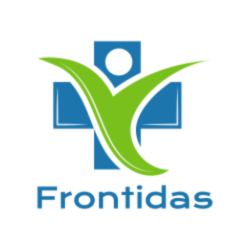Approaching retirement, it’s crucial to manage healthcare expenses. These costs are often second only to housing and transportation in retirees’ budgets. To combat escalating medical expenses, you may need about $165,000 in after-tax savings by age 65. This article will guide you through strategies to minimize healthcare spending in retirement. By understanding your healthcare needs, exploring Medicare, and considering supplemental insurance, you can find affordable healthcare solutions for your senior years.
Key Takeaways
- Healthcare costs are a major expense in retirement.
- Understanding your specific healthcare needs is crucial.
- Familiarize yourself with available Medicare options.
- Explore supplemental insurance to fill coverage gaps.
- Utilizing preventive healthcare services can reduce costs.
- Health Savings Accounts can provide significant tax benefits.
Understand Your Healthcare Needs
Determining your healthcare needs is crucial for effective retirement planning. An in-depth look at your current health status sheds light on healthcare costs you’ll face during retirement. It’s essential to examine any chronic conditions and future health risks. This knowledge is key for allocating the right financial resources for your care.
Assessing Your Current Health Condition
Start with an evaluation of your health. Take note of any chronic illnesses and the number of doctor visits needed. Keeping an all-encompassing view of your health aids in planning and understanding potential costs. Reflect on how your lifestyle could affect your health over time. This step is foundational in crafting healthcare savings tips for retirees for your financial plans.
Anticipating Future Medical Needs
It’s important to think about future health issues when planning. Consider your family’s health history, your lifestyle, and genetics. Planning for future medical needs helps you prepare for unforeseen expenses. Incorporating these considerations will improve managing healthcare costs in retirement. Recognizing what the future might hold strengthens your retirement healthcare budget strategy.
Familiarize Yourself with Medicare Options
Medicare is pivotal for your health needs after retirement, starting at 65. Getting to know Medicare lets you choose wisely for your health coverage. It’s vital to understand its parts to secure affordable senior healthcare options.
Choosing the Right Medicare Plan
Choosing a Medicare plan requires a detailed look at the available coverage. The main components include:
- Medicare Part A: This covers hospital insurance.
- Medicare Part B: This includes medical insurance.
- Medicare Part D: This is for prescription drug coverage.
Medicare Advantage plans offer a mix of Part A and B, with extra benefits sometimes included. These plans can be key in getting needed care and cutting down on personal costs. Utilizing tips for saving on medical expenses in retirement may help in selecting the right plan for you.
Understanding Coverage Gaps
Medicare doesn’t cover every health cost, leading to out-of-pocket expenses. Supplemented insurance like Medigap fills these gaps, giving you more security. Being aware of these gaps can help you plan your budget for healthcare more effectively.

Explore Supplemental Insurance Plans
When planning for healthcare costs in retirement, consider supplemental insurance for added financial security. Medigap policies, for example, fill the gaps Medicare leaves behind. They cover copayments, coinsurance, and deductibles. Carefully evaluating these options is crucial for a solid retirement health savings plan.
Pros and Cons of Medigap Policies
Medigap policies offer benefits and drawbacks. They alleviate financial stress, reducing out-of-pocket costs. For many, the peace of mind from these policies is worth the premiums.
- Advantage: They cover expenses Medicare doesn’t, leading to lower out-of-pocket costs.
- Disadvantage: You’ll face higher monthly premiums, which could strain your budget.
Weigh these factors carefully. Understanding how Medigap impacts your finances helps you make informed healthcare decisions.
Long-Term Care Insurance Considerations
Long-term care insurance is crucial as healthcare costs climb. The financial burden of services like nursing homes is significant—over $116,800 annually. Including long-term care insurance in your retirement plan is wise.
It’s vital to research your options. Insurance plans vary in coverage, costs, and benefits. Explore resources to find a plan that meets your needs and financial goals. For more details, see this informative article.

Utilize Preventive Healthcare Services
Putting preventive healthcare services first can greatly enhance your health and financial stability in retirement. Regular check-ups help spot potential health issues early. This makes treatment easier and often cheaper. It’s a strategy that meshes well with tips for saving on healthcare during retirement. It helps avoid high medical costs later.

Importance of Regular Check-Ups
Consistent visits to your healthcare provider are vital for your health’s upkeep. Regular check-ups let you manage chronic conditions and receive tailored health advice. They also ensure you quickly address any health changes. Many affordable healthcare options for seniors cover these crucial services. This makes adopting a preventive health approach more feasible.
Vaccinations and Screenings
Vaccinations are key to maintaining health and dodging illnesses that could turn into serious medical issues. Keeping vaccinations up to date not only shields you but can also usher in significant savings. Screenings for diseases like cancer and diabetes can detect problems early. This saves you from costly treatments later. For additional details on these services and their role in retirement planning, visit this resource. Leveraging preventive services is a smart way to handle both your health and finances as you age.
Take Advantage of Health Savings Accounts (HSAs)
Health Savings Accounts (HSAs) offer a critical strategy for retirees to handle healthcare costs. They allow you to reserve funds for health expenses with tax benefits. Learning to maximize your HSAs helps considerably in managing retirement healthcare finances.
How HSAs Work for Retirees
HSAs utilize pre-tax contributions to enhance overall savings. By depositing into your HSA, your money grows tax-free. Withdrawals for qualified healthcare expenses are tax-exempt. This makes HSAs an appealing choice for cost-effective healthcare management in retirement, offering both immediate and long-term financial advantages.
Maximizing Your HSA Investments
Maximizing your HSA benefits involves more than just saving; it includes investing. Investment opportunities within HSAs can lead to greater returns. This growth is vital for handling your healthcare costs in retirement. Annually, you can contribute up to $4,150 for individual plans, with an additional $1,000 for those above 55. This approach is efficient for healthcare expense planning.
Shop Around for Prescription Medications
The cost of prescription drugs can heavily affect your budget during retirement. Carrying out some research can lead to important savings for senior citizens. It’s wise to compare prices across different pharmacies. Prices can greatly vary for the same medication at different locations.
Comparing Prices at Different Pharmacies
You should visit various pharmacies or use online platforms to find the most affordable prices for your medications. Many pharmacies have price matching or specials you may not know about. Follow these strategies to secure the best possible prices:
- Check with large chain pharmacies, as they often provide competitive pricing.
- Ask independent pharmacies if they can offer better rates or discounts.
- Utilize pharmacy apps that allow you to compare medication prices easily.
Utilizing Generic Medications
Choosing generic medications is another method to cut medical costs in retirement. Generics have the same active components and benefits as brand-name drugs but are cheaper. Below are several advantages of opting for generics:
- Generics typically cost significantly less than brand-name drugs.
- Insurance plans often have lower copays for generic medications.
- They undergo the same rigorous testing and FDA approval standards as brand-name drugs.
By taking charge of your prescription expenses, you secure a financially healthier future. This ensures your healthcare needs are met affordably.
Learn About State Assistance Programs
When you’re looking into your retirement years, it’s crucial to know about state assistance programs like Medicaid. These programs take a big role in handling retirement healthcare costs. Medicaid assists qualified seniors with expenses not completely covered by Medicare, thus reducing healthcare costs in retirement. Getting to know Medicaid can enable you to use your healthcare options effectively.
Overview of Medicaid for Seniors
Medicaid offers healthcare coverage for those with limited income, including many seniors. It helps with costs like long-term care, hospital visits, and some prescription drugs. By understanding Medicaid’s eligibility requirements and benefits, you can fill any Medicare coverage gaps. This process ensures you stay healthy without incurring huge expenses.
Other Local Resources for Healthcare Savings
There are local programs besides Medicaid that help seniors manage healthcare costs in retirement. These community efforts might include meal deliveries, transport for medical check-ups, and programs to keep you active and healthy. Using these local resources can lead to savings. It also helps build a community network, improving your well-being in retirement.
